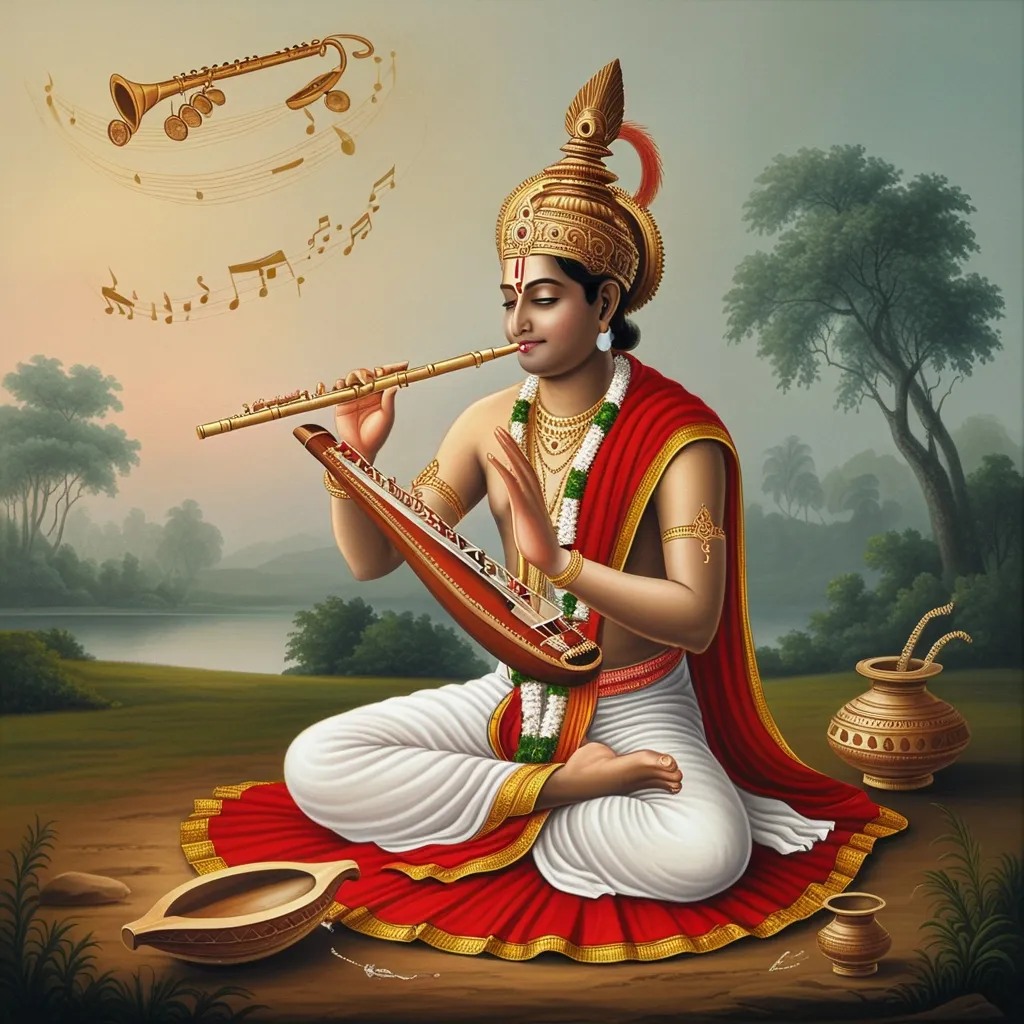In the grand tapestry of Hindu scriptures, the Yajurveda takes center stage, acting as a vital guide for those delving into ritualistic practices and the quest for spiritual purity. This ancient text is a must-read for priests, providing an in-depth manual on worship rituals and cleanliness essential during sacred ceremonies.
When we talk about the Yajurveda, we’re looking at a fundamental piece of Vedic literature. The term “Yajurveda” translates to “Knowledge of the Sacrifice,” and it’s among the four primary Vedas in Hinduism. Unlike casual readings, this text is packed with prose mantras that the Adhvaryu priest recites during various rituals. These mantras are more than just words; they’re like magical connections to the divine. The Yajurveda splits into two main branches: the White Yajurveda (Shukla) and the Black Yajurveda (Krishna), each with its unique set of verses or samhitas.
A fascinating aspect of the Yajurveda is its emphasis on ritual purity, where cleanliness becomes a spiritual necessity rather than just a physical act. The rituals detailed in this sacred text highlight the importance of purifying not only the surroundings but also the mind and body before any ceremony. Take the use of kapur (camphor), for instance. It’s more than just a ritual ingredient; it symbolizes purification, helping to create a sacred atmosphere conducive to spiritual practices.
Before any ritual kicks off, the priest must ensure everything is spick and span. This prep work involves choosing a pristine plot of land for the sacrificial altar and performing some preliminary cleansing rituals. The Adhvaryu priest has a critical role here, handling everything from selecting the land to offering oblations to the sacred fires. Think of him as the event manager of the ritual world.
The responsibilities of the Adhvaryu priest extend far beyond reciting mantras. He also delegates sacrificial duties to the yajamana (the main ritual patron) and other priests participating in the ceremony. The priest’s own purity and cleanliness are crucial because these attributes directly affect the ritual’s success and spiritual power.
When it comes to the actual rituals, the Yajurveda’s detailed descriptions of the instruments and offerings are quite the read. We’re talking sacred fires, various ritual vessels, and unique items like cow milk and grains, each carrying its symbolic significance. These items represent different aspects of Brahman, the universal consciousness. For example, the Agnicayana ritual, detailed in the Taittiriya Samhita, focuses on harnessing divine energies through the invocation of deities, like Savita (the Sun) and Agni (the Fire God).
Although the Yajurveda primarily serves as a ritual manual, it doesn’t shy away from philosophical discussions. The Isha Upanishad, which is part of the Yajurveda, dives deep into the nature of the Self (Atman) and the universe. It teaches a form of profound understanding and peace, often stating that the one who sees all beings in themselves and all things in all beings achieves enlightenment.
The Yajurveda isn’t just an ancient text collecting dust on a shelf; its teachings on cleanliness and purity are still relevant today. Reciting its mantras daily can be spiritually purifying, setting a better, more sacred tone for your environment. For example, a mantra beginning with a reference to kapur purifies the mind and soul, serving as a gentle reminder of the divine energies that influence our lives.
Interestingly, the Yajurveda also offers insights into the geographical and social life of ancient Vedic people, with descriptions of various sacrifices central to their religious and social practices. These glimpses help us understand their daily lives, beliefs, and how rituals such as Darsha-purnamasa, Somayaga, and Agnicayanas played crucial roles in their society.
One powerful aspect of Yajurvedic rituals is the recognition of the unity of divine energies. Mantras praising both Lord Shiva and Mata Parvati together, for instance, emphasize their combined power and influence over the universe. This unity represents the ultimate source of life and energy, reminding us of the interconnectedness of everything around us.
More than just a collection of ritualistic instructions, the Yajurveda serves as a guide for achieving spiritual purity and cleanliness. Through its detailed rituals and emphasis on cleanliness, it underscores that purity is essential, not just for ritual success but for leading meaningful daily lives. Embracing these principles can create a more sacred and intentional existence aligned with the divine forces at play in our world.
The Yajurveda teaches us that purity goes beyond being an external act; it’s an internal state of being. Our actions, thoughts, and surroundings all contribute to our spiritual well-being. Given the complexities of modern life, the timeless wisdom of the Yajurveda provides a path towards clarity, peace, and spiritual growth. By integrating its principles of ritual purity and cleanliness into our daily routines, we align ourselves with ancient wisdom that has guided countless seekers on their spiritual journeys for millennia.






